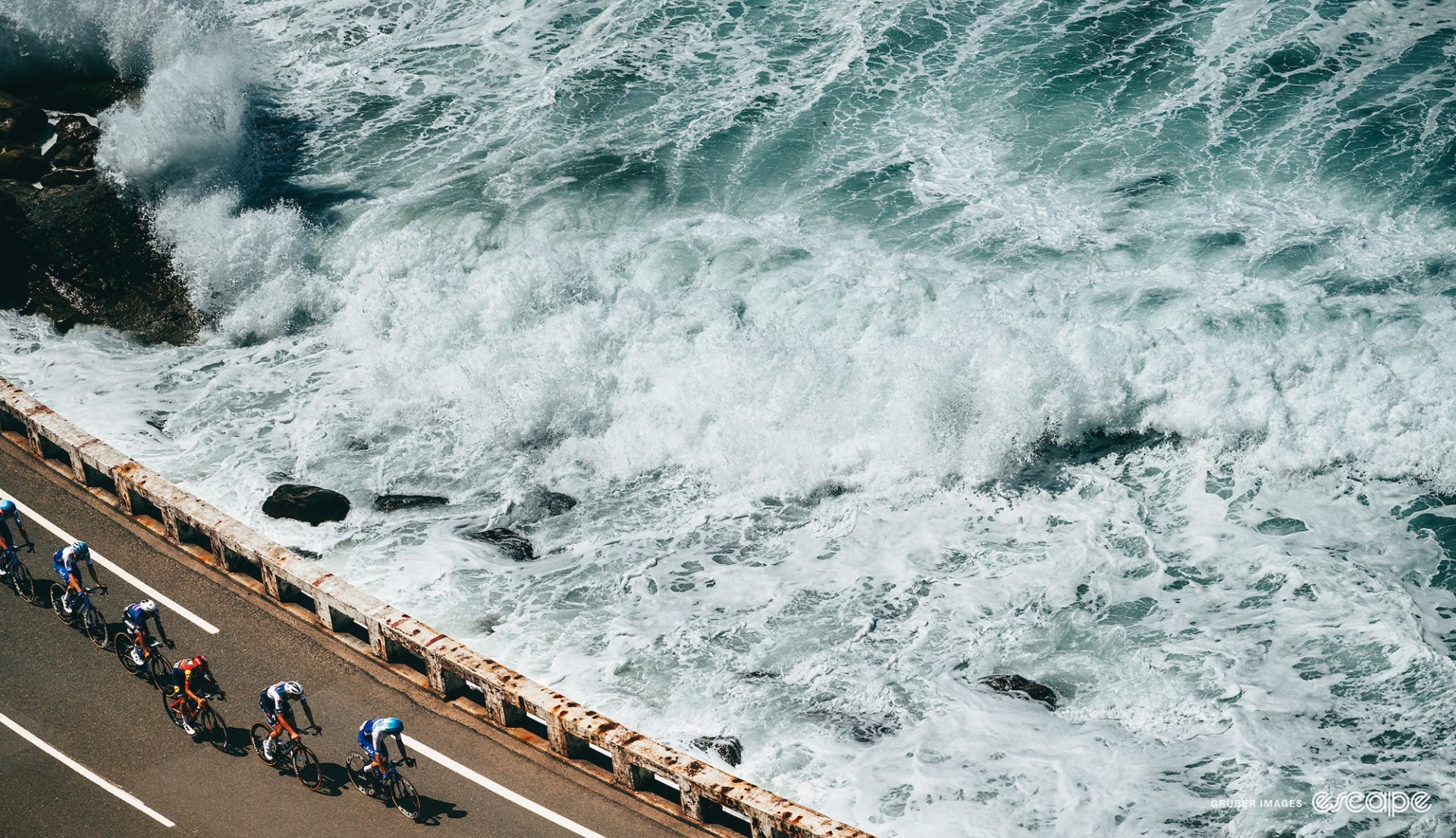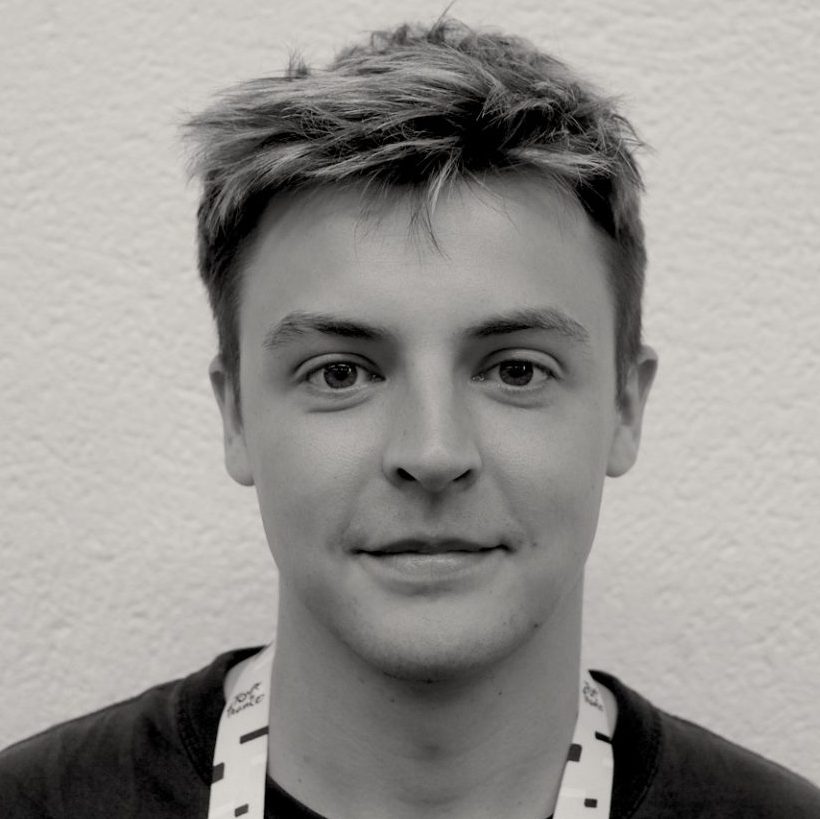Wout Van Aert rolls up to the Jumbo-Visma bus just as the stage 3 sprint replays on the TV positioned above the door.
He clicks out, slows his walk, takes a drink from a bottle and lifts his sunglasses off of his face. As soon as he watches himself in the replay sit up – having not wanted to fight for the space that was closing between the barrier to his right and Jasper Philipsen to his left – Van Aert looks away from the screen. He purses his lips, turned away from the media and fans standing behind him. It’s an expression that’s hard to read into definitively. He is not going to repeat the theatrics of yesterday.
He takes his earpiece out and makes eye contact with a member of staff, exhaling instead of using words to describe how he feels. He turns back to the TV and watches a couple of seconds of the super slo-mo across the line, probably just to work out the placings, and then steps onto the bus.
His early arrival back at Jumbo-Visma’s gold coach is because he’s skipped straight past the post-stage presentations and formalities, having finished fifth. Alpecin-Deceuninck’s Philipsen took the win, with Phil Bauhaus (Bahrain Victorious) runner-up and Caleb Ewan (Lotto-DSTNY) third.
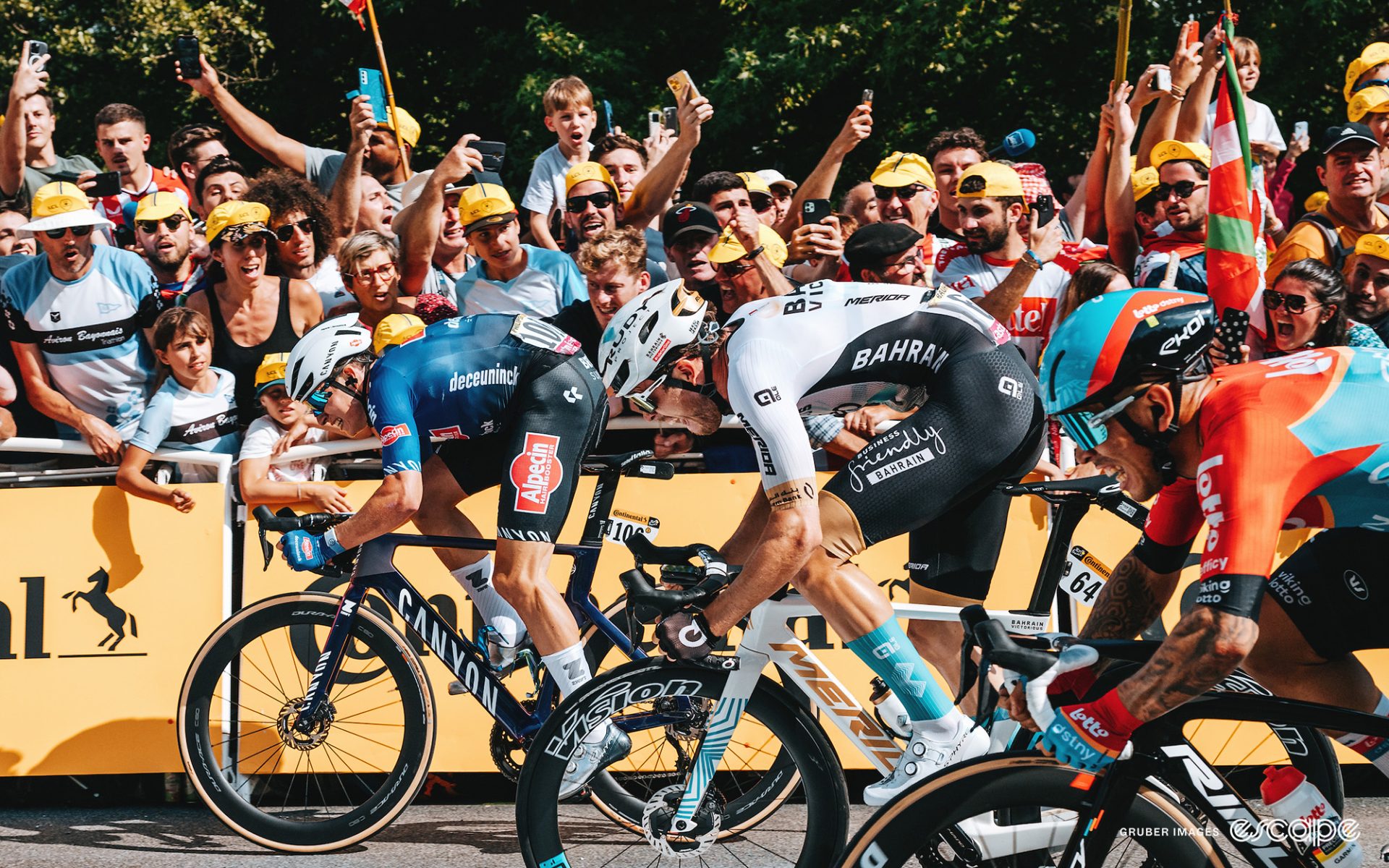
“A complaint? I assume that the jury looks at all the images carefully,” Van Aert said a few minutes later after he’d cooled down and climbed back off the bus to address the media. While he spoke, the race jury was assessing the sprint, momentarily delaying the podium presentation but ultimately finding nothing wrong with how the finale unfolded.
“I started the sprint along the right side of Jasper. We were kind of sprinting at the same height and at one point I met Jasper and on the other side I met the audience, completely losing my momentum. In the last 50 meters I didn’t get around to sprinting anymore,” Van Aert continued.
“Luckily we didn’t fall, but the people hanging over the fence came close. I couldn’t sprint like that anymore … I don’t win anything with it either, because a few other guys finished before me.”
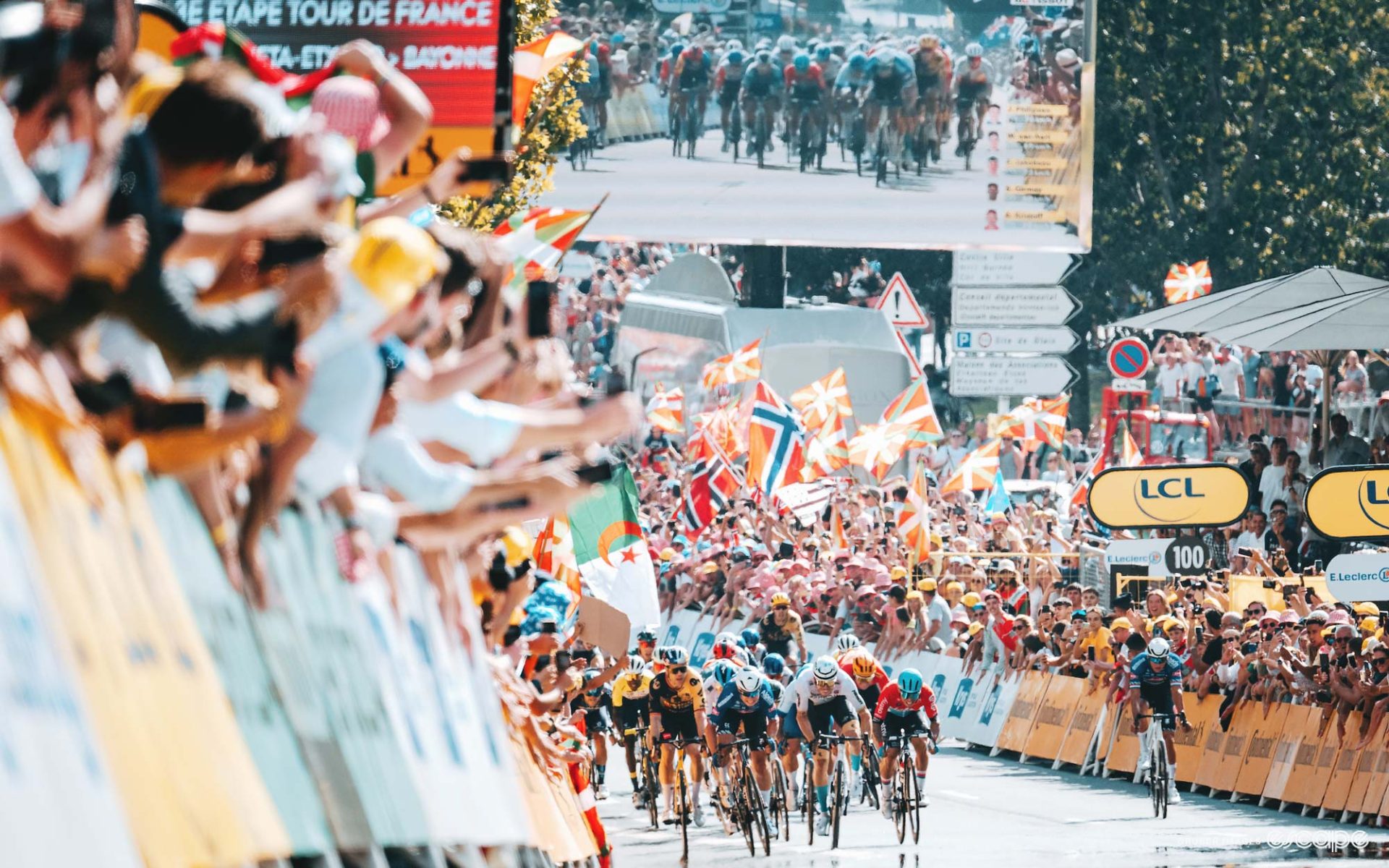
A couple of places ahead of him, Caleb Ewan arrived at a similar conclusion. “With the last kilometre it’s slightly always bending,” came the Australian’s analysis of the finish. “So if you go to move on one side the door shuts, and if you go to move on the other side the door shuts. I had to be patient, but I was a bit too patient because I was too far back to start.
“It was a hectic one, as we would have expected. With the uphill, everybody wanted to get there first so they didn’t have to do the big effort up the hill, and then there was a little bit of twisting in the last kilometre, which makes it hard to move up if you’re not in position because the door always closes on you. It was a messy sprint but it’s to be expected in the first few stages of the Tour.”
The Australian says he feels a “lot of positive signs” but desires that first win to take the pressure off and “get my mojo back” after his self-admitted bad year in 2022. “Not the worst start but not the best,” Ewan graded himself.
For the victor Philipsen, it was back-to-back bunch sprint victories, picking up where he left off on the Champs-Élysées last year. “When you see the other lead-out trains not passing us, you know it’s going fast,” the Belgian said after the finish.
“There was a bit of doubt,” Philipsen continued of the delay for the jury to make their decision. “They [the commissaires] made it quite exciting in the end.”
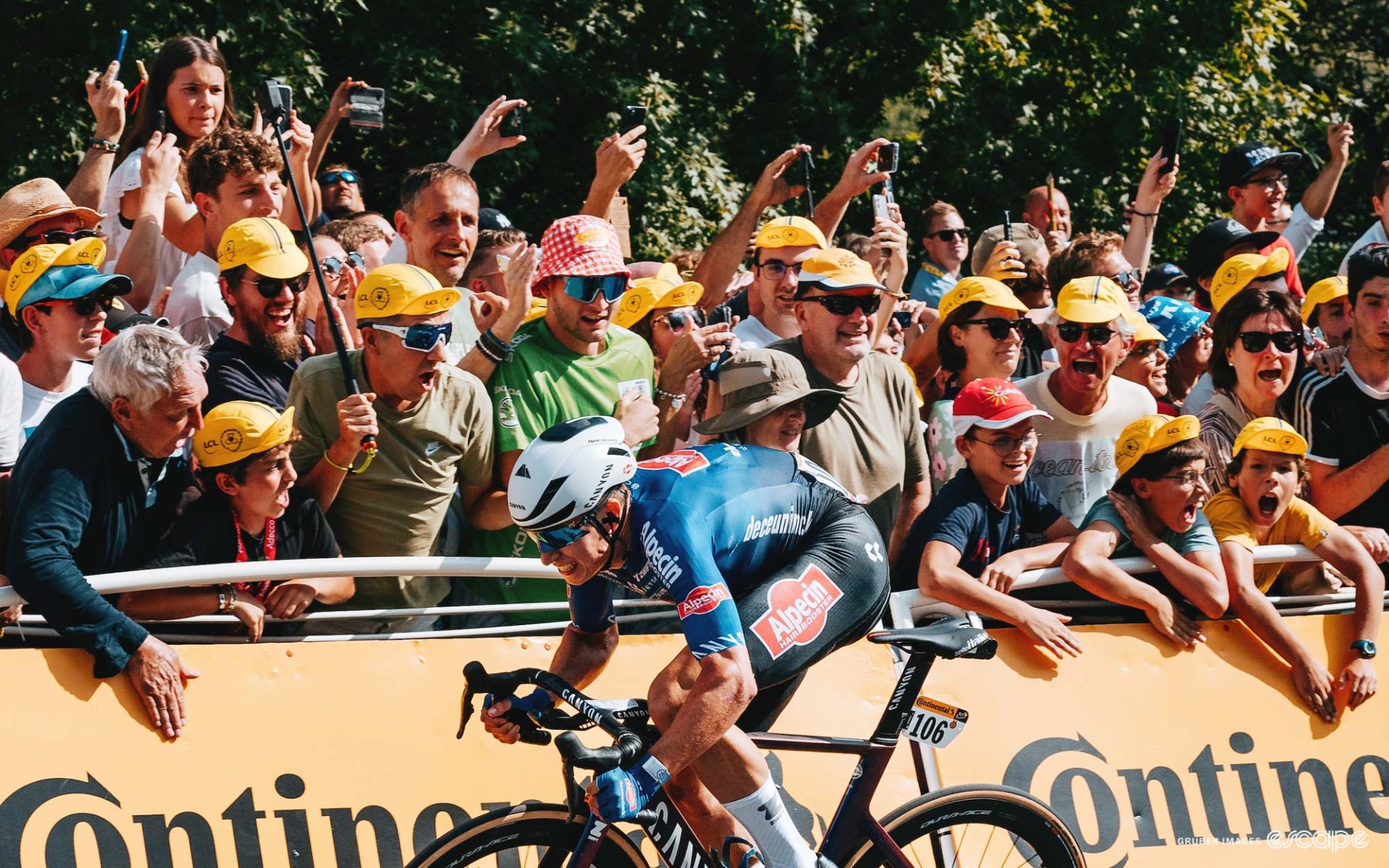
Phil Bauhaus was an unexpected second place, but an impressive result for what was his first Tour de France bunch sprint.
“I mean it’s a great result of course but as a sprinter you want to win,” the German said.
“The general pace is higher,” he said of how this sprint compares to the countless others he’s done up to this point. “More people involved and more guys pushing it to the real limit. I’m happy everyone stayed on the bike. At the end it’s the same guys involved … I still hope I can win in the next days.”
At the Astana-Qazaqstan bus there are more people than usual gathered post-race, all hoping to get a glimpse of the team’s mercurial signing – the veteran sprinter, Mark Cavendish.
We wait. One reporter says that this now feels like the Tour de France proper – the ultimate comedown from the frenetic energy of a bunch sprint stage is a tedious wait outside a team bus on a slip road.
“He will come,” the team’s matter-of-fact Belgian press officer reassures everyone and soon enough Mark Cavendish climbs down the stairs and comes in close towards the cameras and phones towering over his diminutive physique.
“Yeah I’m happy with that,” Cavendish said. “Ok, obviously, we’d like to win, but I’m happy with how the boys rode, I’m happy with the speed. You see the team are up there with more dialled teams – the teams that do it day-in, day-out.
“I was OK. I’m happy with the speed … 500 m to go, I wasn’t even in the top 10, maybe 15th position. I’m happy with that … we said at the beginning that that’s not the best kind of finish for me, it was more for someone like Jonathan Milan or Wout Van Aert.”
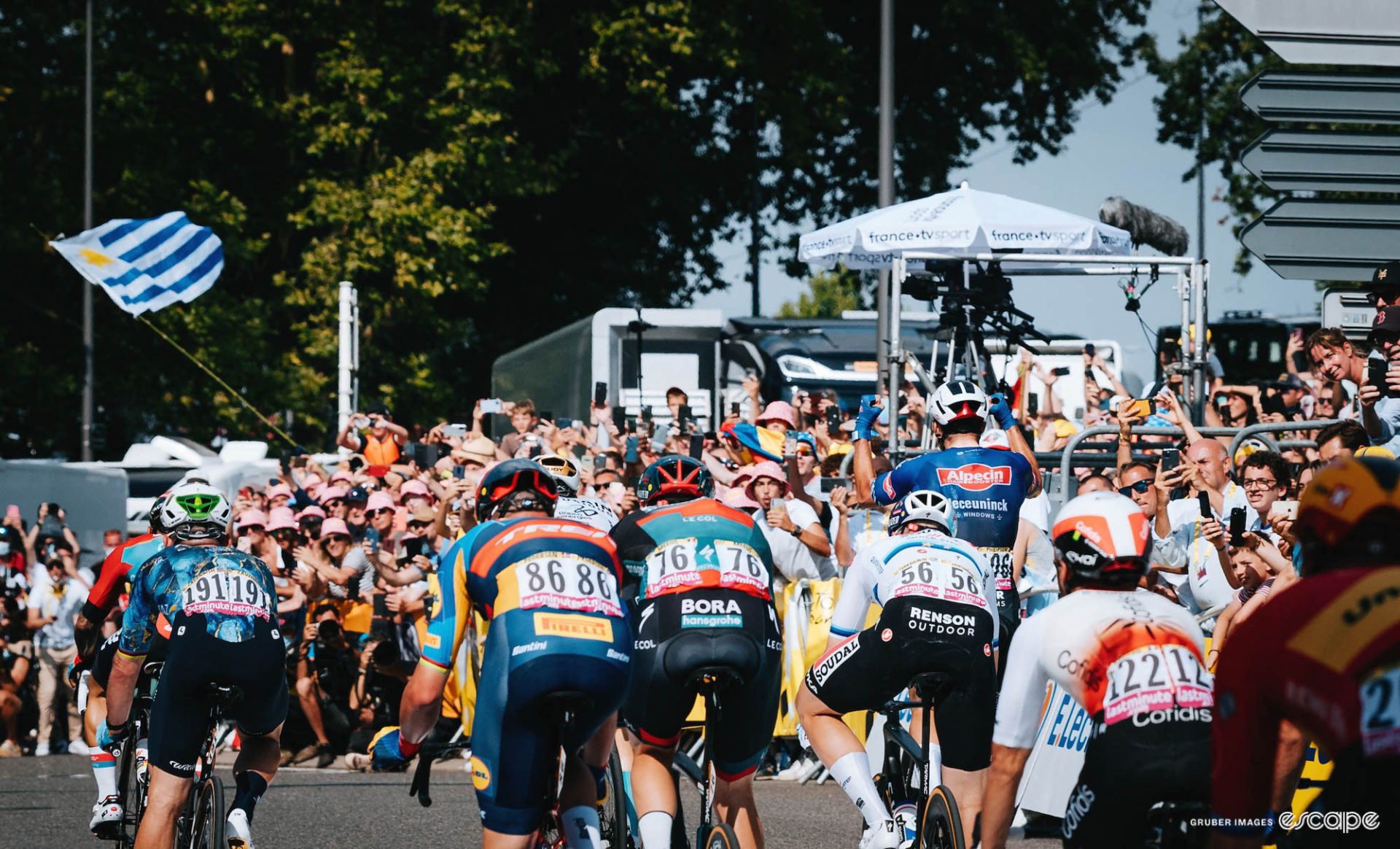
After the first bunch sprint of many to come this Tour de France, there’s a certain sense of relief – that carnage was avoided, and that everyone will compete again tomorrow with a day more experience.
As the eventual winner on stage 3 put it, “crashing today is worse than maybe going on to [contest] the victory.” Even though Philipsen won, there is a certain sense that he and his fellow sprinters were happy enough with a test run. There will be many more opportunities to come. As Patrick Lefevere would say, you judge the accounts once all is said and done.
Did we do a good job with this story?
